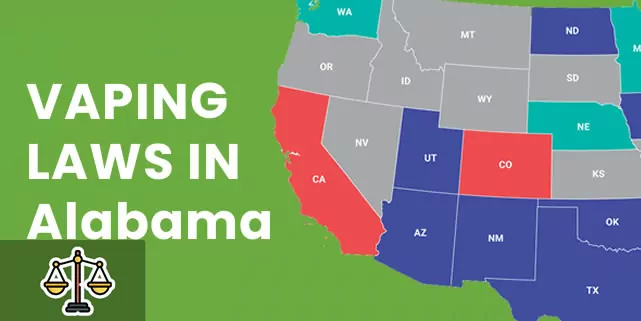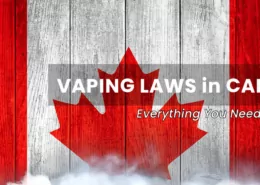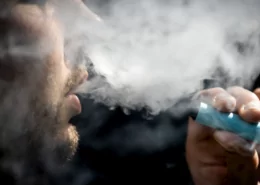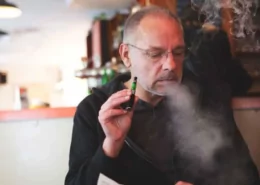Vaping Laws in Alabama – Is it Legal to Vape in Alabama?
update on 07/05 2025
Alabama’s stance on vaping has seen significant legislative activity, reflecting a nationwide trend of states grappling with how to regulate electronic cigarettes and related nicotine products. As vaping has grown in popularity, so too have concerns about public health, youth access, and the need for clear regulatory frameworks. For residents, retailers, and visitors, understanding the current legal landscape in Alabama is crucial. This guide provides an updated overview, incorporating the landmark House Bill 8 (HB8) passed in May 2025, which has reshaped many aspects of vape regulation in the state, building upon previous laws and federal mandates.
The Foundation: Legal Age and Basic Definitions
At the core of Alabama’s vaping laws is the alignment with federal regulations regarding age. Following the federal Tobacco 21 (T21) mandate enacted in December 2019, the legal age to purchase and possess any tobacco products, including e-cigarettes and all vaping products, in Alabama is 21 years old. This superseded Alabama’s previous minimum age of 19. Retailers are strictly required to verify the age of customers, typically via government-issued identification, for anyone appearing under the age of 30, before selling any vaping or alternative nicotine products.
Alabama’s legal code, specifically under §28-11-2(6), defines Electronic Nicotine Delivery Systems (ENDS) as battery-operated devices designed to vaporize e-liquids containing nicotine. This definition encompasses a wide range of products, including vape pens, mods, pod systems, and related accessories. E-liquids themselves, defined as nicotine solutions intended for vaporization, are also subject to regulation. The Alabama Alcoholic Beverage Control (ABC) Board plays a significant role, classifying ENDS as tobacco products for the purposes of permitting and enforcement, creating a somewhat hybrid regulatory model that subjects vapes to many tobacco-like controls.
Landmark Legislation: The Impact of House Bill 8 (HB8) in 2025
May 2025 marked a pivotal moment for vaping regulation in Alabama with the passage of House Bill 8 (HB8). This comprehensive legislation introduced multifaceted reforms designed to tighten controls, enhance enforcement, and specifically address youth access to vaping products. HB8 builds upon previous efforts and aims to remedy shortcomings in earlier laws, such as the 2019 HB41, which notably lacked dedicated funding for robust enforcement.
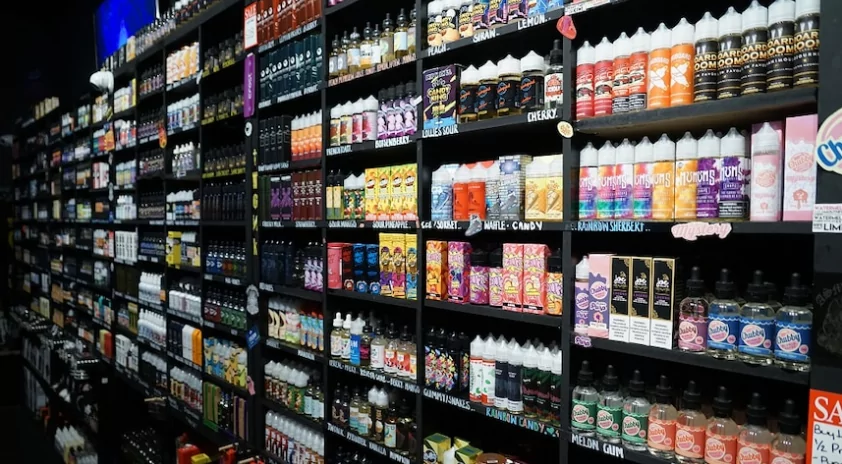
Key Provisions Introduced by HB8:
- Prohibition of Vending Machine Sales (with exceptions): HB8 strictly bans the sale of ENDS through self-service vending machines in locations accessible to minors. Any vending machine sales must occur in adult-only establishments (like bars) or utilize employee-controlled dispensing mechanisms to ensure age verification.
- New Permit Fees and Dedicated Enforcement Funding: A significant change is the introduction of new permit fees for retailers. Businesses selling these products must now pay a $150 annual permit fee per location, plus a $50 application charge. This fee structure is projected to generate approximately $2.5 million annually. Crucially, this revenue is earmarked to create a dedicated fund for enhanced enforcement of vaping laws by the ABC Board and to support school-based anti-vaping awareness and prevention programs across K-12 schools. (Alabama Daily News on HB8 funding).
- Flavor Marketing Restrictions: Addressing concerns about flavors appealing to youth, HB8 limits billboard advertising for vaping products to only tobacco, mint, and menthol flavors. This aligns with some federal FDA considerations regarding flavored cartridge-based products and aims to reduce the visibility of more youth-attractive flavor advertising in public spaces.
- Restructured Penalties for Retailers: The bill increases fines for retailers found violating sales laws (e.g., selling to underage individuals). Penalties now escalate to $200 for a first offense, $750 for a second offense, and $1,000 for subsequent offenses. Repeat violations can also lead to permit suspension or revocation.
- Shift in Penalties for Minors: While minors caught possessing or using vape products still face consequences (fines up to $300), HB8 places a greater emphasis on education and diversion programs rather than solely punitive measures. Schools receiving funding from the new permit fees are mandated to implement curricula detailing the neurodevelopmental risks of nicotine for adolescents.
- Expanded Geographic Restrictions for Vape Shops: HB8 significantly expands restrictions on where new vape shops can be located. New establishments are now prohibited from opening within 1,000 feet of schools, public parks, and libraries. This broadens previous restrictions that primarily focused on proximity to churches and daycare centers.
- Transparent Vending Machine Design: For any permitted vending machines, HB8 mandates designs that allow for visual verification of tax stamps on products without needing to unlock the device, aiding compliance checks.
Retail Landscape: Permitting, Placement, and Advertising
Operating as a vape retailer in Alabama requires strict adherence to state regulations, now further defined by HB8.
All businesses intending to sell ENDS must obtain a tobacco permit from the Alabama ABC Board. As stipulated by HB8, this permit is renewable annually at a cost of $150 per retail location, plus the initial $50 application fee. These permits are non-transferable and specific to the approved location. Any violation of sales laws, particularly selling to individuals under 21, can jeopardize this permit.
In terms of product placement within stores, HB8 reinforces measures to curb youth access. In-store displays of vaping products must now be confined to areas directly accessed or controlled by employees, such as behind the counter. This eliminates open shelving or displays that minors could easily access, aiming to reduce impulse purchases by adolescents who are known to be particularly susceptible to appealing packaging and flavors.
Advertising regulations also play a role. Beyond the billboard flavor restrictions introduced by HB8, Alabama law generally prohibits the marketing of ENDS as smoking cessation tools or as “healthy” alternatives to traditional cigarettes. Retailers must be mindful of these promotional constraints.
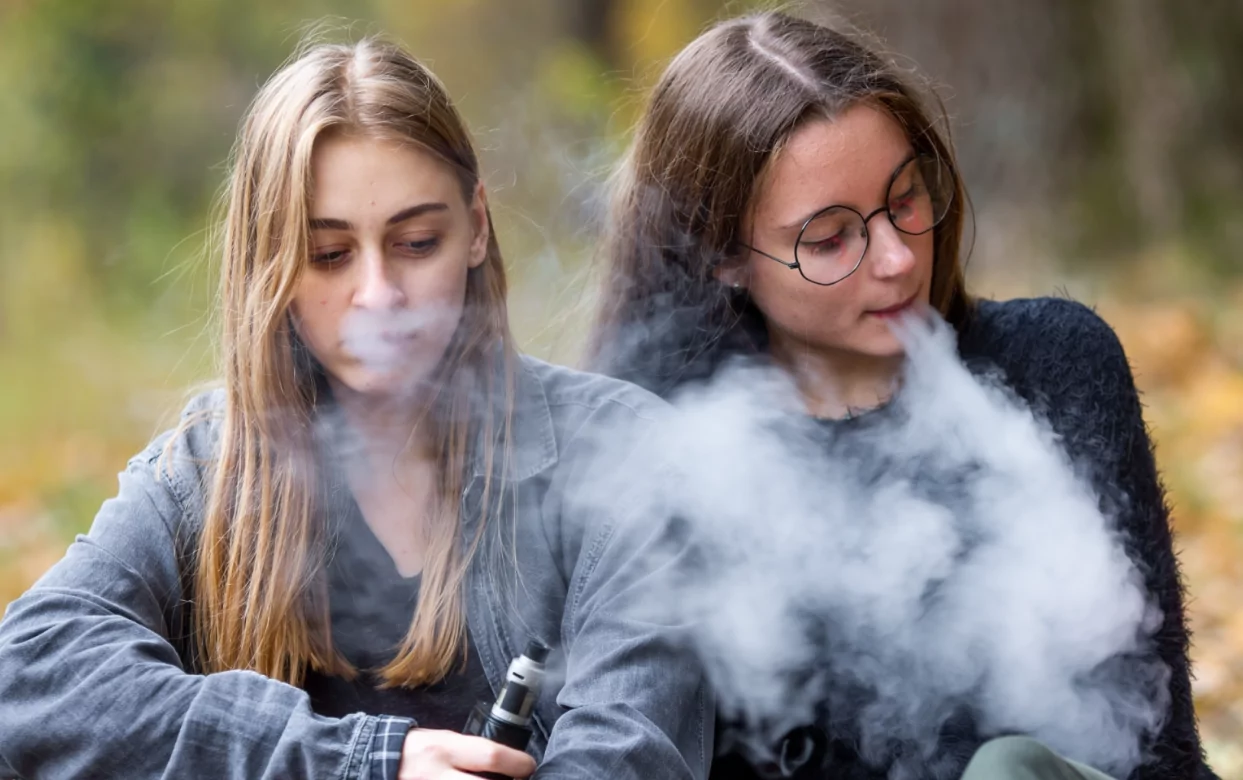
Where Can You (and Can’t You) Vape in Alabama?
Understanding where vaping is permitted is crucial. While HB8 primarily focuses on sales, access, and youth prevention, existing laws and local ordinances govern public use.
State-Level Restrictions:
Alabama state law, including the Alabama Clean Indoor Air Act, prohibits smoking (which often includes vaping by definition or interpretation) in many public places. These typically include:
- Government buildings
- Healthcare facilities (hospitals, clinics)
- Schools (K-12 grounds, including for students, staff, and visitors)
- Restaurants and bars (though some local exceptions or specific designated areas might exist if not overridden by stricter local rules)
- Many workplaces
- Public transportation
Vaping in Vehicles with Minors: A Specific Ban
A significant law that took effect on August 1, 2023, specifically targets vaping and smoking in vehicles. It is illegal to smoke or vape inside any vehicle, whether moving or stationary, if passengers aged 14 or younger are present. This applies regardless of whether windows are open. Violators face fines of up to $100. However, police can only issue citations for this as a secondary offense, meaning they must have stopped the vehicle for a primary violation like speeding first. (Alabama Public Health on Car Vaping Ban).
Local Ordinances: A Patchwork of Rules
It’s very important for vapers in Alabama to be aware that many cities and counties have enacted their own, often stricter, local ordinances regarding vaping in public and enclosed spaces. The original blog post listed numerous cities with such local rules, including Anniston, Cullman, Decatur, Gadsden, Homewood, Mountain Brook, Opelika, and others. These local laws can expand the list of prohibited places significantly. Therefore, it’s always best to check the specific ordinances of the city or county you are in and look for posted signage. When in doubt, assume vaping is not permitted, especially indoors.
Vaping While Driving (General):
While the 2023 law specifically addresses vaping with young passengers, there isn’t a statewide Alabama law explicitly banning the act of vaping while driving for adults alone in their vehicle. However, law enforcement can still cite drivers for distracted driving if vaping impairs their ability to operate the vehicle safely. It’s always advisable to avoid activities that could divert your attention from the road.
Online Sales: Age Verification is Key
Alabama law permits the online sale of vaping products, but with important safeguards. Retailers, whether in-state or out-of-state selling to Alabama consumers, are required to implement robust age verification processes. This typically involves using a third-party age verification service to confirm the customer is at least 21. Additionally, shipments must utilize a delivery method that requires an adult signature upon receipt to prevent products from falling into the hands of minors. However, the ABC Board’s direct oversight and enforcement capabilities are often more focused on in-state licensed retailers, making the regulation of out-of-state online sellers a more complex challenge.
Ecigator is one of the well-known vape brands spun off from FM Technology Co., Ltd, it’s an ISO-certified disposable vape manufacturer for OEMs, ODMs, and OBM since 2010. The founder team comes from top firms with more than 10 years of experience in the vaping industry and has devoted thousands of hours to providing users with a better and better experience.
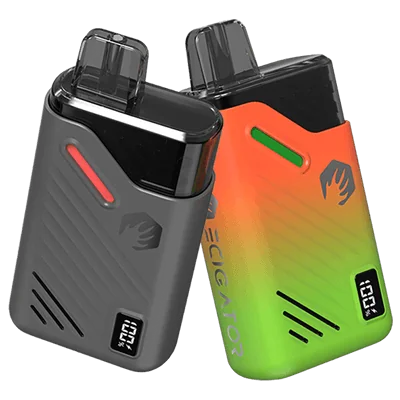
18K Disposable Pod Kit
Disposable Pod Kit – 18ml changeable pod with 650mAh rechargeable battery.
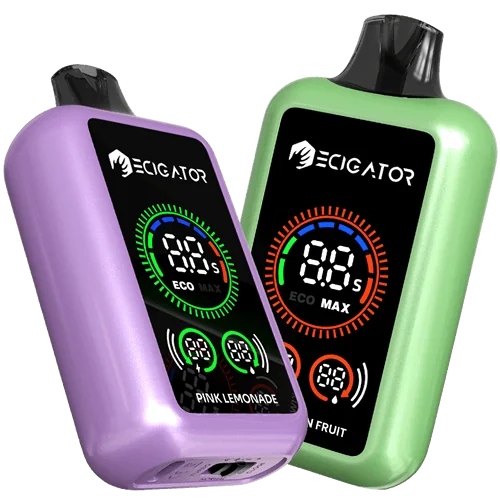
20K with Large Screen
20000 Puffs Disposable Vape with large screen. Normal and Boost working modes.
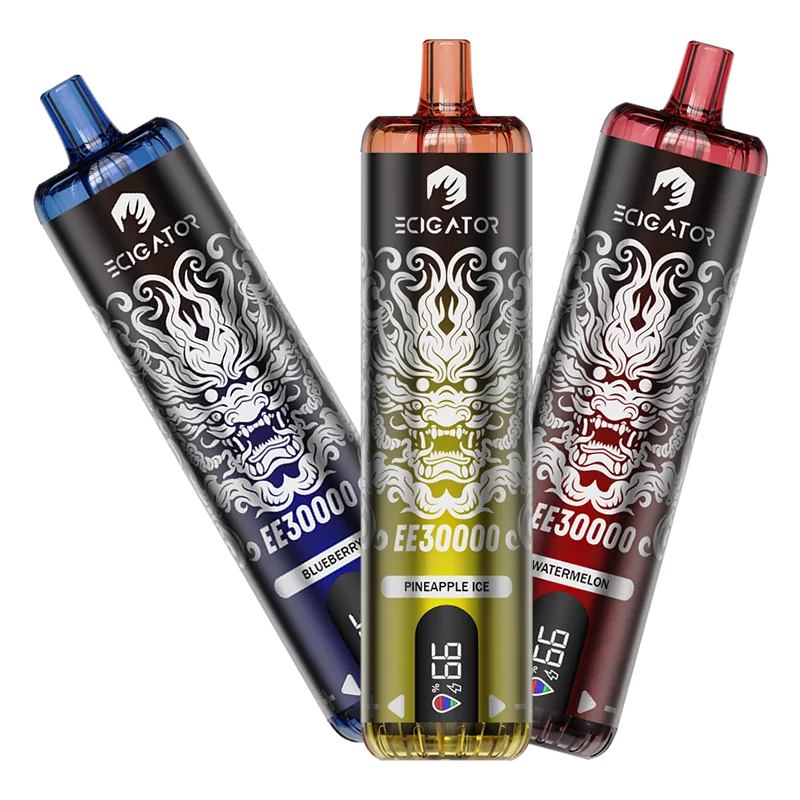
30K DTL Disposable
30K Puffs DTL(Directly to Lung) disposable vape with airflow control and screen.
Public Health Focus and Ongoing Challenges
The legislative efforts in Alabama, particularly HB8, clearly demonstrate a strong focus on preventing youth uptake of vaping products. Health officials cite concerning statistics; for example, Alabama’s high school vaping usage rate (reported at 22% in some analyses) has exceeded the Southeast average, making youth prevention a top priority. The flavor marketing restrictions in HB8 directly target one of the main drivers of youth appeal.
Despite these measures, challenges remain. Critics sometimes point out that regulations like HB8 might exempt certain products like premium cigars or loose-leaf tobacco, creating perceived loopholes. The effective regulation of online sales, especially from out-of-state vendors, continues to be a hurdle for many states. As vaping product technology evolves rapidly (e.g., with nicotine salts, new disposable designs), continuous legislative and regulatory adaptation will be necessary. National discussions, such as potential FDA action on menthol flavors, could also influence future state-level policies.
Conclusion: A Stricter, More Focused Regulatory Era in Alabama
Alabama’s approach to vaping regulation has matured significantly, culminating in the comprehensive measures introduced by House Bill 8 in 2025. The state now has a framework that prioritizes preventing youth access through stricter sales laws, dedicated enforcement funding, school-based education, and marketing restrictions. While adult vaping remains legal for those 21 and over, the environment is more controlled, with clear penalties for violations by both retailers and underage users.
For vapers, this means being acutely aware of the legal age, restrictions on public use (which vary significantly by locality), and the specific rules governing sales. For businesses, compliance with licensing, age verification, product placement, and marketing laws is non-negotiable. As Alabama continues to navigate the complex intersection of public health, individual choice, and commercial interests, further refinements to its vaping laws are always possible, underscoring the need for all stakeholders to stay informed.
- Is It Illegal to Vape or Smoke While Driving in the UK? - August 11, 2025
- Virginia Roanoke Considers $20,000 Annual Fee for Vape Shops - August 11, 2025
- Mississippi to Ban Unauthorized Vape Products in October - August 11, 2025

